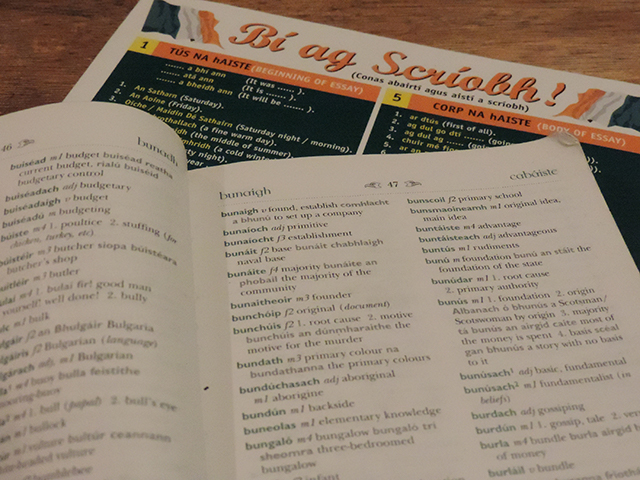
[dropcap]Irish[/dropcap] is set to be a full official language of the European Union (EU) by 2022.
In the next few years, there will be a substantial increase in the number of Irish-language staff in the EU institutions, including translators, interpreters, lawyer-linguists and assistants.
“Fiontar [the DCU school that delivers programmes through Irish] graduates will benefit massively from this development which makes me feel very excited for our students,” said Sorcha Ní Chonghaile, the DCU Student Union Irish Officer. The demand for translators over the next few years could create many jobs for students nearing the end of their degree.
Citizens of the EU have the right to use any of the 24 official languages when in contact with EU institutions, for example, the European Court of Justice, and must be responded to in the same language.
“The Irish Language needs the globalisation of her to ensure we have a more modern understanding of the possibilities of Irish but on a more practical level, this move will create countless jobs and will no doubt improve the appreciation of the language,” said Ní Chonghaile.
The Irish government was offered Irish as an official language when they joined the EU in 1972 but was declined. It was asked for in 2004 but due to a restriction in available translators, it was restricted to use in regulations adopted by both the EU Council and the European Parliament.
“I would be interested to see how the language would thrive in a professional working environment on a global scale seeing as it struggles to remain even a cultural language at a national level, but I do believe there’s enough interest among our generation to create these jobs,” said Anna Stenson, a third year B.Ed student.
All of the EU regulations and laws are published in the official languages and Members of the European Parliament (MEP) can use the language they know best when speaking in session.
“This language is part of our national identity and as such be treated with the same respect as other European languages,” said Alannah Nic A Bhaird a fourth-year B.Ed.
The chair of Cumann Gaelach DCU Ruairí Mac Aodhagáin said: “I think it’s very worthwhile to supply these jobs in the EU as the Irish language is an extremely important part of our national identity… It could also encourage more people to learn Irish if they want to live abroad within Europe.”
Róise McGagh
Image Credit: Rachel Halpin



